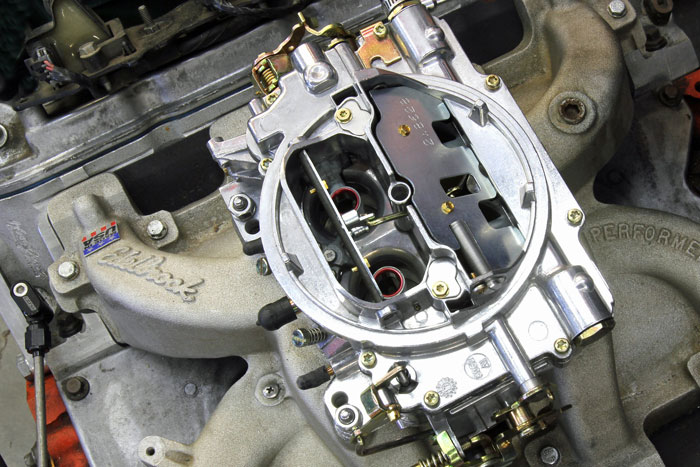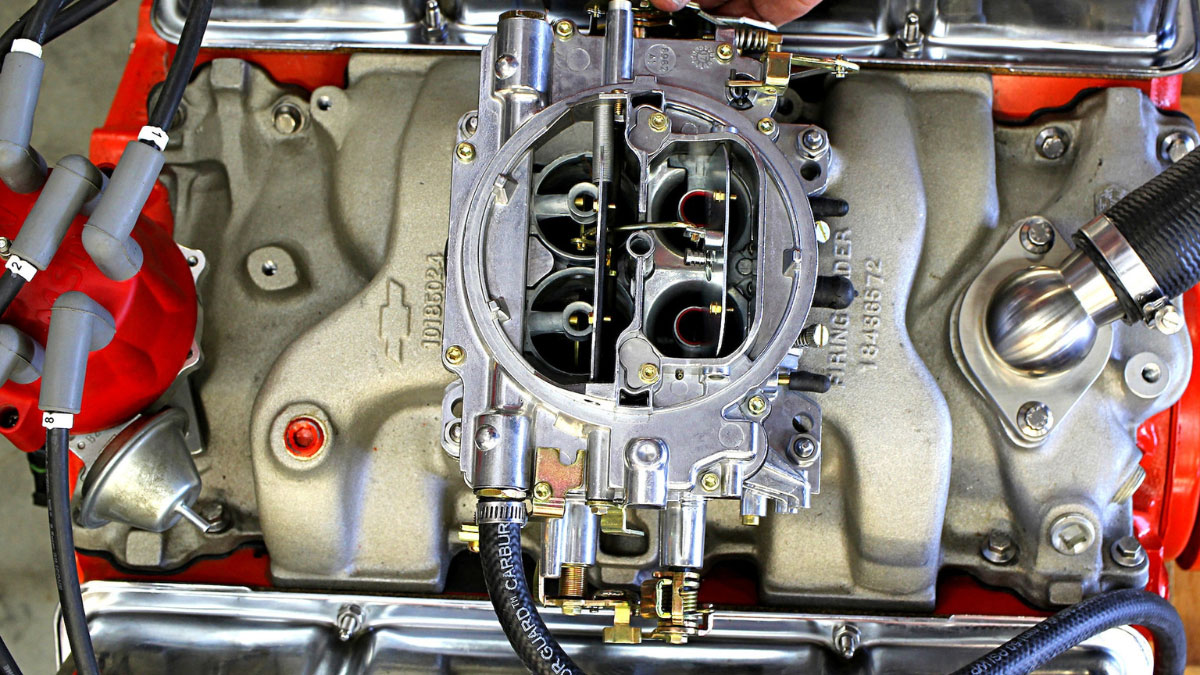Dealing with too much fuel pressure in an Edelbrock carburetor can lead to a host of issues that can affect your vehicle’s performance. As a car enthusiast, I’ve encountered the telltale signs of excessive fuel pressure and understand the importance of addressing this issue promptly. In this article, I’ll delve into the symptoms that indicate your Edelbrock carburetor may be experiencing too much fuel pressure.
Excessive fuel pressure can wreak havoc on your engine, causing a range of problems that can impact your driving experience. From poor fuel efficiency to rough idling and even potential engine damage, the effects of high fuel pressure should not be overlooked. In the following sections, I’ll outline the key indicators that your Edelbrock carburetor may be struggling with excessive fuel pressure, helping you diagnose and resolve the issue effectively.
Key Takeaways
- Excessive fuel pressure in Edelbrock carburetors can lead to significant issues that affect overall vehicle performance.
- Common symptoms of too much fuel pressure include hard starting, rough idle, poor throttle response, fuel leaks, black smoke from the exhaust, and frothy fuel lines.
- Troubleshooting high fuel pressure involves checking pressure with a gauge and adjusting the fuel pressure regulator if necessary.
- If adjusting the regulator does not resolve the issue, it may be necessary to replace the regulator to maintain optimal fuel pressure levels.
- Consulting a professional mechanic is advisable if DIY troubleshooting methods do not solve the problem, as persistent high fuel pressure can cause engine damage.
Common Symptoms of Excessive Fuel Pressure in Edelbrock Carbs
Experiencing issues with too much fuel pressure in Edelbrock carburetors can result in various symptoms that impact your vehicle’s performance. It’s crucial to identify these signs promptly to prevent further damage and ensure optimal operation. Let’s delve into some common indicators of excessive fuel pressure with Edelbrock carbs:

Hard Starting or Failure to Start
I’ve noticed that when there’s excessive fuel pressure in an Edelbrock carb, one common symptom is difficulty starting the engine or even a complete failure to start. This situation arises due to the rich air-fuel mixture caused by the heightened pressure, making ignition challenging.
Rough Idle and Stalling
Another prevalent sign of too much fuel pressure in Edelbrock carbs is experiencing a rough idle or frequent stalling of the engine. The increased pressure disrupts the proper air-fuel ratio, leading to an unstable idle and intermittent stalling while driving, affecting the overall performance.
Poor Throttle Response
When dealing with excessive fuel pressure in Edelbrock carbs, poor throttle response is a key symptom to watch out for. The engine may hesitate or struggle to respond promptly to throttle input, resulting in sluggish acceleration and an overall unresponsive driving experience.
Visual Indicators of Overpressure
Inspecting visual cues can help identify potential issues related to excessive fuel pressure in Edelbrock carburetors. Here are some key signs to watch out for:
Fuel Leaks and Fumes
I’ve noticed that one prevalent visual indicator of high fuel pressure in an Edelbrock carb is the presence of fuel leaks and strong fumes around the carburetor area. These leaks can occur due to the excess pressure forcing fuel past seals and gaskets, leading to a noticeable smell of gasoline and visible wet spots.
Black Smoke from the Exhaust
Another clear visual cue of overpressure in an Edelbrock carb is the emission of black smoke from the vehicle’s exhaust system. This occurs when the carburetor delivers an excessive amount of fuel to the engine, resulting in incomplete combustion and the production of dark, sooty exhaust fumes.
Bubbles or Froth in Fuel Lines
One visual anomaly that can indicate high fuel pressure is the presence of bubbles or froth in the fuel lines connected to the carburetor. Excessive pressure can cause air to mix with the fuel, forming bubbles or froth that hinder the smooth flow of gasoline to the engine, affecting its performance.
Troubleshooting Tips
Checking and Adjusting Fuel Pressure
To troubleshoot high fuel pressure in an Edelbrock carburetor, I recommend checking the fuel pressure using a gauge specifically designed for this purpose. It’s crucial to ensure that the pressure is within the manufacturer’s specified range to prevent performance issues. If the pressure is too high, adjusting the fuel pressure regulator can help bring it back to the optimal level.
When to Replace Fuel Pressure Regulator
If adjusting the fuel pressure regulator doesn’t resolve the issue of excessive fuel pressure in your Edelbrock carburetor, it may be time to consider replacing the regulator. A faulty regulator can lead to consistent high fuel pressure, causing difficulties in engine performance. It’s essential to replace the regulator with a quality component to maintain the proper fuel pressure for optimal engine operation.
When to Consult a Professional Mechanic
If troubleshooting high fuel pressure in your Edelbrock carburetor by checking and adjusting the pressure with a specialized gauge or replacing the regulator hasn’t resolved the issue, it’s time to consult a professional mechanic. Ignoring persistent high fuel pressure problems can lead to further damage to your vehicle’s engine and overall performance. A skilled mechanic can conduct a comprehensive evaluation, pinpoint the root cause of the issue, and recommend the best course of action to restore your carburetor to optimal functioning. Remember, timely intervention by a qualified professional can prevent costly repairs down the line and ensure that your vehicle operates efficiently.
Frequently Asked Questions
What is the best fuel pressure for a carburetor?
The ideal fuel pressure for a carburetor typically ranges from 4 to 7 psi. However, it is crucial to consult the specific manufacturer’s recommendations for your carburetor model to ensure optimal performance.
What are the symptoms of too high fuel pressure?
High fuel pressure symptoms include engine flooding, rough idle, excessive fuel consumption, black smoke from the exhaust, and potential damage to engine components due to over pressurization.
What is the fuel pressure for an Edelbrock 1406 carb?
For an Edelbrock 1406 carburetor, the recommended fuel pressure at idle is around 6.0 psi. Adjusting the fuel pressure regulator to maintain a consistent pressure within this range is essential for proper carburetor function and engine performance.
What are the symptoms of low fuel pressure on a carbureted engine?
Common signs of low fuel pressure in a carbureted engine include engine hesitation, stalling, rough idling, difficulty starting, and poor acceleration. Addressing low fuel pressure promptly is crucial to prevent engine performance issues and potential damage.
Conclusion
Recognizing and addressing high fuel pressure in an Edelbrock carburetor is crucial for maintaining optimal vehicle performance. By understanding the symptoms of excessive fuel pressure, such as hard starting, rough idle, and poor throttle response, car owners can take proactive steps to troubleshoot and resolve the issue. Whether adjusting the fuel pressure regulator or opting for a replacement, timely intervention is key to preventing further damage and ensuring efficient engine operation. Consulting a professional mechanic when troubleshooting efforts fall short is advisable to avoid costly repairs down the line. Stay informed, take action, and prioritize the health of your vehicle’s fuel system for a smoother driving experience.

